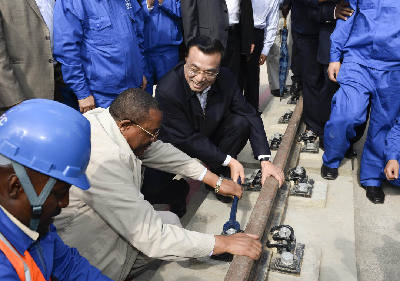How to Nail a Job Interview
PEOPLE must always play to their advantage in job interviews. But a good performance can be a challenge because there is so much to present in a limited time. During job interviews, employers will make an all-round evaluation of candidates, including their educational background, expertise, experience, ability to cooperate with team members, foreign language skills, communication skills, networks, their suitability to the company in terms of values and so on. All these are factors in securing the ideal job because they are highly valued by future employers. So how to demonstrate your abilities in the interview is crucial when you are up against stiff competition.
Recently, RMG launched the Recruitment Insider survey for the first quarter of the year. Based on data we collected, expertise, communication skills, and educational background came out top of the list of key factors employers care about most when interviewing candidates, scoring 66.9 percent, 50.2 percent and 41.4 percent respectively. Matching their values with the company’s culture and the certificates or honors that candidates may have won were employers’ lowest priorities. The data come from a survey of almost 600 HR and hiring managers in China. According to the survey, one of the main points we found is that Chinese employers pay more attention to practical skills, while Western employers place degree of suitability to the company’s culture as one of the most-valued features. So, if you want to perform best at a job interview with a Chinese employer, you should concentrate on demonstrating your expertise and communication skills.
Another interesting discovery is that HR managers and line managers regard the key points of interviews differently. Usually, employers will arrange two or three rounds of interviews for candidates to make a complete analysis before deciding whether or not to hire. HR managers, hiring managers and top executives will participate in interviews at different stages of the process. This means that what you want to prove in each interview should be emphasized differently to take into account the types of concerns the various managers may have. HR managers, for example, prefer to evaluate candidates by matching their values with company ethos, while hiring managers will pay more attention to the candidates’ ability to relate to fellow employees. This comes as no surprise, because each manager has different job responsibilities; HR is responsible for the construction of a business culture, and hiring managers have to evaluate the benefit and risk behind the position, and how new employees will work efficiently. Consequently they will care more about the candidate’s ability to deal with what goes on in the workplace.
What’s more, employers have various requirements for different levels of job-seekers. Tao Jiang, deputy director of the HR department at Toshiba Medical Systems Corporation, said: “For potential employees with related work experience, we pay more attention to their professional skills, experience in the related industry and whether they are team players when we are working on the recruitment plan. For new graduates, we care more about their ability to innovate in a professional setting and their practical skills.”
Expertise and communication skills can be presented in various ways. As far as your expertise is concerned, you should demonstrate some related knowledge and experience. This is the most important element of preparation for your job interview. So, before your interview you should think of some cases you have successfully dealt with, using the STAR principle (Situation, Task, Action and Result) to describe them. Try to present each of these four categories in three sentences. Then, to show your communication skills, it is first important to listen carefully and ask appropriate questions. Secondly, it is important to make eye contact with the interviewer and remember the impact of your body language. The third point is to present your abilities in a simple but systematic way. Some role-play before the job interview will improve your performance on the day.
- 2015 RMG Recruitment Insider Survey (Q1) Launched
- China Mobilizes in Nepal Rescue Effort
- The Multidimensional Values of the Asian Infrastructure Investment Bank
- Friendship Advances on Equality and Mutual Benefit – Interview with Danish Ambassador to China Friis Arne Petersen Danish Ambassador to China Friis Arne Petersen.
- Heads Together on the China-U.S. Bilateral Investment Treaty

